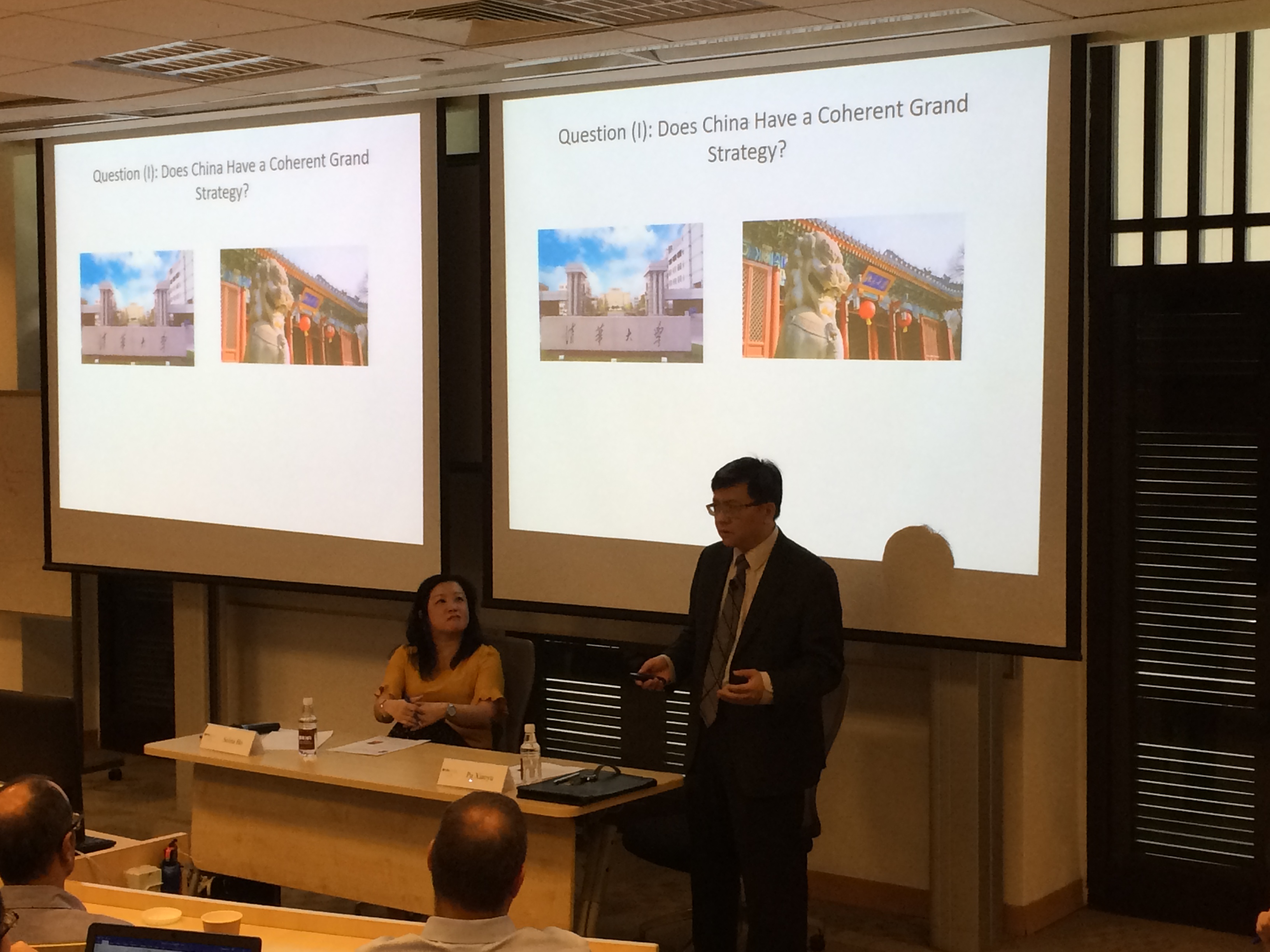
On September 4, 2018, Assistant Professor Pu Xiaoyu of Political Science at the University of Nevada, Reno, presented a book talk on the topic, “Rebranding China: Contested status signaling in the changing global order”. Assistant Professor Selina Ho was the moderator for the talk. Pu began his talk by describing two contrasting events in 2017: Chinese President Xi Jinping announced China’s intention to defend economic globalization, while American President Donald Trump emphasized “America First”. Many argue that the world is not only undergoing a power transition, but that a transition of global leadership from the United States to China is also taking place. However, China has faced increasing backlashes from the West since 2017. The Trump administration has identified China as a “revisionist” power. From these episodes, there are two conventional understandings of China’s rise: First, China has coherent grand strategies to expand its power and influence; and second, China’s status dissatisfaction is the driving force in the power transition and US-China tension. According to these arguments, China is intending to replace the United States as a new global leader. Pu, however, provides an alternative perspective.

The two key questions are: first, does China really have a coherent strategy? second, does China always want to have a higher status? While China’s foreign policy is based on its self-identity and national interests, there are still many debates on these issues within China. It is not clear if China really has a grand strategy at the international stage. While the 19th Party Congress had clearly defined the nation’s social and economic goals, it was very vague on the directions of international strategies. It is also not clear if China has the intention to replace the United States as the global leader. Chinese leaders have at times emphasized that China has no intention “to lead the world or replace anyone”. Pu borrowed the term “rebranding” to identify the dilemma of China’s foreign policy on the global stage. For China, it is about finding a new position on the international stage. In order to find the ideal position on the international stage, China used status signaling, a set of behaviors that demonstrate a state’s preferred international standing. China has multiple identities and multiple audiences. These conflicting identities have generated debates of Chinese foreign policy both inside and outside of China. Chinese leaders also have different incentives to emphasize China’s different identities to different audiences. However, Chinese leaders could not transmit particular information exclusively to the intended audiences. This multiple audience problem leads to misunderstandings and backlashes from other unintended audiences. For example, some Chinese officials and scholars have highlighted China’s achievement for domestic propaganda purpose, but such information has also been captured by China’s foreign audience, thus contributing to the “China threat” narrative.

Among the empirical chapters, Pu focused on chapter six of his book. Pu used the example of “spin doctor” to illustrate the fact that Chinese leaders are emphasizing different aspects of China to suit different audiences. For example, during the Financial Crisis in 2008, China stressed on its developing nation status to avoid taking up greater responsibilities. On the other hand, China also used its developing nation status to garner solidarity from other developing nations. However, recent narrations on “the Chinese model” made people wonder whether China is ready to replace the United States as the global public good provider. Pu argues that while China might not be ready to lead the world like the United States, China could still be a co-leader. For example, China can be a facilitator for multilateral talks. This kind of leadership is conceptualized as “facilitating leadership” by some Chinese scholars. There will be less backlashes if China takes on this role. Furthermore, China could also increase its economic cooperation with the developing world instead of exporting its political model.
This event was covered by Xu Shengwei, Research Assistant at the Centre on Asia and Globalisation, Lee Kuan Yew School of Public Policy.